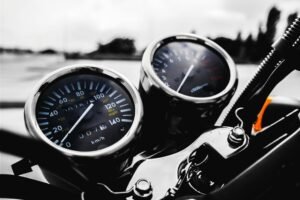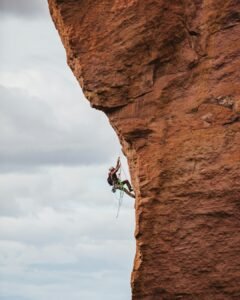Comprehensive Guide of Sports Memorabilia Collecting
Overview
Sports memorabilia collecting is a fascinating hobby that involves acquiring items related to sports, athletes, and teams. This can include a wide range of collectibles such as autographed jerseys, trading cards, game-worn equipment, photographs, and even tickets from significant games. Collectors often seek items that hold historical significance or personal value, making this hobby not only a way to celebrate sports but also a means of preserving history. The thrill of the hunt, the joy of displaying a collection, and the potential for investment make sports memorabilia collecting a rewarding pastime for enthusiasts of all ages.
History
The history of sports memorabilia collecting can be traced back to the early 20th century when fans began to cherish items associated with their favorite teams and athletes. The rise of professional sports leagues, such as Major League Baseball (MLB) and the National Football League (NFL), contributed to the popularity of collectibles. In the 1950s and 1960s, trading cards became a significant aspect of the hobby, with companies like Topps and Fleer producing cards that featured players and statistics. Over the decades, the hobby has evolved, with the introduction of online marketplaces and auction sites, making it easier for collectors to buy, sell, and trade items. The emergence of grading services has also added a layer of legitimacy and value to collectibles, allowing collectors to assess the condition and authenticity of their items.
Popularity and Demographics
Sports memorabilia collecting has gained immense popularity, appealing to a diverse demographic of fans and collectors. According to a survey by the Sports Collectors Association, approximately 40% of sports fans in the United States engage in some form of memorabilia collecting. This hobby attracts individuals of all ages, with a notable presence among middle-aged men who often have disposable income to invest in their collections. However, younger collectors are increasingly entering the market, driven by social media and online communities that foster sharing and trading. Events such as sports card shows and conventions also contribute to the hobby’s growth, providing collectors with opportunities to connect, learn, and expand their collections. The rise of digital collectibles, such as NFTs (non-fungible tokens), is also reshaping the landscape of sports memorabilia, attracting a new generation of collectors interested in unique digital assets.
Sponsored Hobbyists and Vendors
Become a Sponsor!
Affiliate Disclaimer: Throughout some sections below, Hobby Spotlight may suggest some tools, equipment or material using affiliate links. By purchasing any of those items, Hobby Spotlight may earn a small commission. This helps fund our website, content and services without directly charging our users.
Getting Started
Essential Tools and Equipment:
Beginner
- Display Case: A protective display case for showcasing sports memorabilia.
- Storage Binder: A binder with sleeves for organizing and protecting trading cards.
- Price Guide Book: A guide to help determine the value of sports memorabilia.
- Authentication Kit: A basic kit for verifying the authenticity of memorabilia.
- Marker Pen: A fine-tip marker for labeling and organizing items.
Intermediate
- UV Protection Display Case: A display case with UV protection to preserve memorabilia.
- Digital Camera: A camera for taking high-quality photos of your collection.
- Inventory Management Software: Software to track and manage your sports memorabilia collection.
- Professional Authentication Service: Service for professional authentication of high-value items.
- Framing Supplies: Supplies for framing jerseys or other large memorabilia.
Basic Requirements and Initial Setup:
- Display Space: A dedicated area to showcase your collection, such as shelves, display cases, or shadow boxes, helps protect items while allowing for easy viewing.
- Storage Solutions: Use acid-free boxes, sleeves, or binders to protect cards, photos, and other memorabilia from damage, dust, and moisture.
- Research Materials: Access to books, magazines, and online resources about sports memorabilia can help you understand the market, identify valuable items, and learn about authentication.
Fundamental Skills to Learn:
- Authentication Techniques: Learn how to verify the authenticity of items, including signatures and game-worn gear, to avoid counterfeit products.
- Condition Assessment: Develop the ability to evaluate the condition of items, understanding grading scales and how they affect value.
- Market Research: Stay informed about current trends, prices, and demand in the sports memorabilia market to make informed buying and selling decisions.
- Networking: Build relationships with other collectors, dealers, and auction houses to gain insights and access to exclusive items.
- Organization Skills: Keep your collection organized, whether by sport, team, player, or type of item, to easily track and manage your inventory.
Sub-Hobby/Common Activities:
- Card Collecting: Focus on trading cards from various sports, including baseball, basketball, football, and hockey, often seeking rare or graded cards.
- Autograph Collecting: Obtain signatures from athletes through in-person signings, mail requests, or purchasing authenticated items.
- Game-Worn Memorabilia: Collect jerseys, shoes, and equipment used by athletes during games, often sought after for their unique history.
- Vintage Collecting: Specialize in older memorabilia, such as classic cards or items from historic games, which can hold significant value.
- Display and Preservation: Engage in creating custom displays for your collection, ensuring items are preserved and showcased effectively.
Terminology:
- Grading: The process of evaluating the condition of a collectible item, often using a numerical scale to determine its quality.
- Authentication: The verification process that confirms an item’s legitimacy, often involving expert analysis or certificates.
- Rookie Card: The first trading card issued for a player, often considered highly valuable among collectors.
- Limited Edition: Items produced in a restricted quantity, often increasing their desirability and value.
- Provenance: The documented history of an item, including previous ownership and sales, which can affect its value.
- Market Value: The current price an item can fetch in the marketplace, influenced by demand and condition.
- Trade Shows: Events where collectors and dealers gather to buy, sell, and trade memorabilia, often featuring guest athletes.
- Showcase: A display case or area where items are exhibited, often used to highlight valuable or rare pieces.
- Collectible: An item that is sought after by collectors, often due to its rarity, condition, or historical significance.
- Flipping: The practice of buying items at a lower price and selling them at a higher price for profit.
Advanced Topics and Specializations
Advanced Tools and Equipment:
- Professional Sports Memorabilia Display Case: A high-quality display case designed to protect and showcase valuable sports memorabilia.
- Sports Card Grading Kit: A complete kit for grading and preserving sports cards, including magnifying tools and protective sleeves.
- Digital Camera for High-Quality Photography: A DSLR or mirrorless camera with high resolution for capturing detailed images of memorabilia.
- Ultraviolet Light for Authentication: A UV light used to verify the authenticity of autographs and memorabilia by revealing hidden features.
Advanced Projects and Achievements:
- Complete Set Collections: Assembling a full set of a specific sports card series, such as the 1986 Fleer Basketball set, which includes iconic rookie cards like Michael Jordan.
- Autographed Memorabilia Displays: Curating a display of autographed jerseys, balls, and photos from legendary athletes, showcasing both the items and their significance in sports history.
- Rare Item Acquisition: Successfully acquiring rare and valuable items, such as game-worn jerseys or limited edition collectibles, that significantly enhance a collection’s value and prestige.
Advanced Techniques and Methods:
- Grading and Authentication: Learning how to assess the condition of sports cards and memorabilia using grading scales (like PSA or BGS) and understanding authentication processes to ensure item legitimacy.
- Market Analysis: Utilizing market trends and sales data to make informed decisions about buying, selling, or trading items within the sports memorabilia market.
- Preservation Techniques: Implementing proper storage methods, such as using UV-protective cases and climate-controlled environments, to maintain the condition and value of collectibles.
Specializations and Niche Areas:
- Vintage Sports Cards: Focusing on collecting cards from earlier decades, often featuring legendary players and iconic moments in sports history.
- Game-Worn Memorabilia: Specializing in items that have been worn or used in actual games, providing a direct connection to the athletes and events.
- Autographed Items: Collecting items that have been signed by athletes, including balls, jerseys, and photographs, often seeking out unique or rare signatures.
- Team-Specific Collections: Concentrating on memorabilia from a particular team, including jerseys, hats, and promotional items that celebrate the team’s history and achievements.
- International Sports Memorabilia: Exploring collectibles from sports outside of the mainstream, such as soccer, cricket, or rugby, to diversify a collection.
Future Trends and Innovations:
- Increased use of blockchain technology for verifying authenticity and ownership of collectibles.
- Growing popularity of digital collectibles and NFTs (non-fungible tokens) in the sports memorabilia market.
- Enhanced online marketplaces that utilize AI to match buyers and sellers based on preferences and past purchases.
- Expansion of virtual reality experiences that allow collectors to view and interact with memorabilia in immersive environments.
- Emphasis on sustainability, with collectors seeking eco-friendly products and practices in the memorabilia industry.
Technology Integration:
- Mobile Apps for Collectors: Utilizing apps that help track collections, assess values, and connect with other collectors.
- Online Auction Platforms: Engaging with platforms that facilitate bidding on rare items, providing a global marketplace for collectors.
- Social Media Communities: Leveraging platforms like Instagram and Facebook to share collections, connect with other enthusiasts, and stay updated on trends.
- Augmented Reality (AR) Features: Using AR to visualize how memorabilia would look in a personal space or to enhance the display of items.
- Data Analytics Tools: Employing tools that analyze market trends and pricing to make informed buying and selling decisions.
Further Learning and Resources
Books:
- Color and Light: A Guide for the Realist Painter by James Gurney: An advanced guide that delves into the complexities of color and light, providing in-depth knowledge for experienced painters looking to enhance their realism.
- Alla Prima II: Everything I Know About Painting by Richard Schmid: A comprehensive book that covers advanced painting techniques and insights from a master painter, ideal for those looking to refine their skills.
- The Oil Painting Course You’ve Always Wanted by Kathleen Staiger: An advanced guide that offers detailed instruction on oil painting techniques, from composition to finishing touches, for experienced artists.
Websites:
- Beckett, https://www.beckett.com – A leading resource for sports memorabilia pricing, news, and market trends.
- Sports Collectors Daily, https://www.sportscollectorsdaily.com – Provides news, articles, and insights on the sports memorabilia market.
- eBay Sports Memorabilia, https://www.ebay.com/b/Sports-Memorabilia/2605/bn_56761015 – A popular platform for buying and selling a wide range of sports collectibles.
- PSA (Professional Sports Authenticator), https://www.psacard.com – Offers grading services and a marketplace for authenticated sports memorabilia.
- Sports Memorabilia, https://www.sportsmemorabilia.com – An online store specializing in authentic sports collectibles and memorabilia.
Courses:
- Sports Memorabilia Collecting 101, https://www.udemy.com/course/sports-memorabilia-collecting-101 – A beginner’s course covering the basics of collecting sports memorabilia.
- Advanced Sports Memorabilia Collecting, https://www.udemy.com/course/advanced-sports-memorabilia-collecting – Focuses on advanced strategies for serious collectors.
- eBay Selling for Sports Memorabilia, https://www.skillshare.com/classes/eBay-Selling-for-Sports-Memorabilia/123456 – Learn how to effectively sell your sports memorabilia on eBay.
- Grading and Authentication of Sports Memorabilia, https://www.coursera.org/learn/grading-authentication-sports-memorabilia – A course on how to grade and authenticate sports collectibles.
- Building a Sports Memorabilia Collection, https://www.masterclass.com/classes/building-a-sports-memorabilia-collection – Insights from experts on how to build and manage a valuable collection.
Content Creators and Community
Content Creators:
- Jeff Wilson (YouTube): A leading voice in the sports card collecting community, he provides insights on market trends, investment strategies, and showcases valuable cards.
- Sports Cards (Instagram): A popular account sharing stunning visuals of rare sports cards, along with tips for collectors and enthusiasts.
- Josh Johnson (YouTube): Focuses on sports card collecting, offering interviews with collectors and insights into the hobby’s evolution.
- Sports Card Investor (Twitch): Live streaming sessions where Jeff Wilson discusses the latest trends in sports memorabilia and engages with the community.
- Sports Card Collectors (Facebook): A vibrant community where collectors share their collections, trade cards, and discuss market trends.
- Cardboard Connection (YouTube): Offers product reviews, hobby news, and insights into the sports card market, catering to both new and seasoned collectors.
- Jersey Junkies (Instagram): A dedicated account showcasing sports jerseys and memorabilia, providing tips on collecting and preserving items.
Online Forums and Social Media Groups:
- Reddit – /r/sportscards: A community for collectors to share their collections, discuss market trends, and seek advice.
- Facebook Sports Memorabilia Groups: Various groups where collectors can buy, sell, and trade memorabilia while sharing tips and experiences.
- Blowout Cards Forum: A popular forum for discussing sports cards, trading, and sharing insights on the hobby.
- Instagram Hashtags (#sportsmemorabilia, #cardcollecting): Follow these hashtags to discover new collections, trends, and community highlights.
- Pinterest Boards: Explore boards dedicated to sports memorabilia collecting, featuring tips, display ideas, and collection showcases.
Local Clubs and Organizations:
- Local Sports Card Shops: Many cities have shops that host events, trading nights, and community gatherings for collectors.
- Sports Memorabilia Collectors Clubs: Organizations that bring together enthusiasts for meetings, trading events, and educational sessions.
- Card Shows: Regularly held events where collectors can buy, sell, and trade cards while networking with others in the hobby.
- Local Sports Teams Fan Clubs: Often host events where memorabilia collectors can meet and share their collections.
- Meetup Groups: Platforms like Meetup.com host local gatherings for sports memorabilia enthusiasts to connect and share their passion.
Events, Meetups, and Conventions:
- National Sports Collectors Convention: The largest annual event for sports memorabilia collectors, featuring vendors, signings, and educational panels.
- Local Card Shows: Regional events that allow collectors to buy, sell, and trade cards while meeting fellow enthusiasts.
- Sports Memorabilia Expos: Events showcasing a variety of memorabilia, including cards, jerseys, and autographs, with opportunities for networking.
- Workshops and Seminars: Often held at conventions, these sessions provide insights into collecting, preserving, and valuing sports memorabilia.
- Online Virtual Events: Many organizations now host virtual meetups and webinars, allowing collectors to connect and learn from anywhere.
Associated Hobbies
- Autograph Collecting: Many sports memorabilia collectors focus on acquiring autographs from athletes, which can significantly increase the value of their collections. This hobby often involves attending events, games, or conventions to obtain signatures in person.
- Card Collecting: Trading cards, especially vintage or rare ones, are a popular aspect of sports memorabilia collecting. Collectors often seek out specific players, teams, or sets, and may engage in trading or selling cards to enhance their collections.
- Game-Worn Items: Some collectors specialize in acquiring items worn or used by athletes during games, such as jerseys, shoes, or helmets. These items often hold significant sentimental and monetary value, making them highly sought after.
- Sports Art and Prints: Collecting artwork related to sports, including prints, paintings, and sculptures, can be a unique way to celebrate favorite teams or athletes. This hobby allows collectors to appreciate the artistic representation of sports culture.
- Memorabilia Display and Preservation: Many collectors take pride in how they display and preserve their collections. This can involve creating custom displays, using protective cases, and ensuring items are kept in optimal conditions to maintain their value.
- Historical Research: Engaging in research about the history of sports and specific athletes can enhance the collecting experience. Collectors often enjoy learning about the significance of their items and the stories behind them.
- Networking with Other Collectors: Joining clubs, forums, or social media groups dedicated to sports memorabilia collecting can provide valuable connections. Networking allows collectors to share knowledge, trade items, and attend events together.
- Investment and Trading: Some collectors view sports memorabilia as an investment opportunity. Understanding market trends, rarity, and demand can help collectors make informed decisions about buying, selling, or trading items for profit.
Cost and Budgeting
Initial Investment and Ongoing Costs:
- Initial Investment: The cost to start collecting sports memorabilia can vary widely based on the type of items you choose to collect. Basic items like trading cards or autographed photos can start at around $20-$50. However, more valuable items such as game-worn jerseys or signed equipment can range from $100 to several thousand dollars, depending on the player and rarity.
- Ongoing Costs: Ongoing costs may include purchasing new items to add to your collection, which can vary greatly. Additionally, you may want to invest in protective cases, display stands, or storage solutions, which can range from $10 to $100 or more. Insurance for high-value items is also a consideration, with costs depending on the total value of your collection.
Budget-Friendly Options:
- Local Sports Card Shops: Many local shops offer affordable options for beginners, including bulk deals on trading cards or lower-priced memorabilia.
- Online Auctions: Websites like eBay often have auctions where you can find memorabilia at lower prices, especially if you are willing to bid on items.
- Trade Shows and Conventions: Attending local sports memorabilia shows can provide opportunities to find deals and negotiate prices directly with sellers.
Where to Buy:
- Specialty Sports Memorabilia Stores: These stores often have a curated selection of items and knowledgeable staff who can help you find what you’re looking for.
- Online Marketplaces: Websites like eBay, Etsy, and Amazon have extensive listings for sports memorabilia, allowing you to compare prices and find unique items.
- Sports Auctions: Auction houses that specialize in sports memorabilia can be a great place to find rare items, though it’s important to be aware of buyer’s premiums and shipping costs.
Money Making
How to Turn the Hobby into a Profession or Side Hustle:
- Sports Memorabilia Dealer: Start your own business by buying and selling sports memorabilia. This could involve setting up an online store or a physical shop where you can showcase and sell items like jerseys, autographed balls, and trading cards. Building a reputation as a trusted dealer can attract collectors and sports fans alike.
- Sports Memorabilia Appraiser: If you have extensive knowledge about the value of sports collectibles, consider becoming an appraiser. You can offer your services to individuals looking to sell their items or to insurance companies needing valuations for coverage. This role requires a keen understanding of market trends and item authenticity.
- Content Creator and Influencer: Utilize social media platforms to share your passion for sports memorabilia. Create engaging content such as unboxing videos, reviews, and educational posts about the history and value of different items. As your following grows, you can monetize your content through sponsorships, affiliate marketing, and merchandise sales.
- Sports Memorabilia Auctioneer: Organize and conduct auctions for rare and valuable sports memorabilia. This could involve partnering with auction houses or starting your own auction events. By curating high-quality items and marketing them effectively, you can attract serious collectors willing to bid significant amounts.
- Sports Memorabilia Blog or Podcast: Start a blog or podcast dedicated to discussing sports memorabilia. Share insights, interviews with collectors, and tips on how to start and grow a collection. Monetization can come from advertising, sponsorships, and affiliate links to products or services related to sports collectibles.
Benefits and Enjoyment
Physical, Mental, and Social Benefits:
- Physical Activity: While collecting sports memorabilia may not seem physically demanding, it can involve activities such as attending sports events, visiting shops, and participating in trade shows. These activities can promote physical movement and encourage collectors to stay active.
- Mental Stimulation: Collecting sports memorabilia requires research, organization, and critical thinking. Collectors often delve into the history of sports, learn about different athletes, and understand market trends, which keeps the mind engaged and sharp.
- Social Connection: The hobby fosters connections with fellow collectors, sports fans, and communities. Engaging in discussions, attending conventions, and participating in online forums can lead to friendships and a sense of belonging among enthusiasts.
Success Stories and Inspirational Examples:
- Ken Goldin: Founder of Goldin Auctions, Ken Goldin turned his passion for collecting sports memorabilia into a successful auction house. He has facilitated the sale of some of the most valuable sports collectibles, including game-worn jerseys and rare trading cards, inspiring many collectors to pursue their passion professionally.
- Mike Piazza: The former MLB catcher is not only known for his impressive baseball career but also for his extensive collection of sports memorabilia. Piazza’s passion for collecting has led him to acquire rare items, showcasing how a love for sports can translate into a rewarding hobby.
- Bill Mastro: A well-known figure in the sports memorabilia world, Bill Mastro gained fame for his role in the sale of the famous T206 Honus Wagner baseball card. His story highlights the potential for significant financial success in the hobby, as well as the importance of authenticity and ethics in collecting.
Ways to Enjoy and Grow in the Hobby:
- Attend Sports Memorabilia Shows: Participating in local and national memorabilia shows allows collectors to meet other enthusiasts, discover new items, and learn from experts in the field. These events often feature guest speakers, workshops, and opportunities to buy, sell, or trade items.
- Join Online Collecting Communities: Engaging with online forums and social media groups dedicated to sports memorabilia collecting can provide valuable insights, tips, and support. These platforms allow collectors to share their collections, ask questions, and connect with others who share their passion.
- Focus on a Specific Niche: Specializing in a particular sport, team, or type of memorabilia can enhance your collecting experience. By narrowing your focus, you can develop expertise, build a more cohesive collection, and connect with other collectors who share your interests.
Challenges and Solutions
Common Challenges Faced by Hobbyists:
- Cost of Items: Collecting sports memorabilia can be quite expensive, especially for rare or autographed items. Prices can vary significantly based on the item’s condition, rarity, and demand, making it essential for collectors to budget wisely.
- Authenticity Issues: With the rise of counterfeit memorabilia, collectors often face challenges in verifying the authenticity of items. This can lead to financial loss and disappointment if a collector unknowingly purchases a fake.
- Storage and Display: Properly storing and displaying memorabilia is crucial to maintaining its value. Many collectors struggle with finding adequate space and the right conditions to protect their items from damage.
- Market Fluctuations: The value of sports memorabilia can fluctuate based on player performance, team success, and market trends. Collectors may find it challenging to navigate these changes and make informed decisions about buying or selling items.
Tips for Overcoming These Challenges:
- Set a Budget: Determine a budget for your collecting activities to avoid overspending. Stick to this budget and prioritize items that are most meaningful to you.
- Research and Verify: Always do thorough research before purchasing memorabilia. Look for reputable dealers, check for certificates of authenticity, and seek expert opinions when in doubt.
- Invest in Proper Storage: Use protective cases, acid-free materials, and climate-controlled environments to store your memorabilia. This will help preserve the condition and value of your collection.
- Stay Informed: Keep up with market trends and news related to sports memorabilia. Join collector groups, attend shows, and follow online forums to gain insights and advice from experienced collectors.
Safety Considerations and Best Practices:
- Handle items with clean hands and avoid touching the surfaces of collectibles to prevent oils and dirt from causing damage.
- Use UV-protective glass for display cases to minimize exposure to harmful light that can fade or damage memorabilia.
- Keep items away from direct sunlight, humidity, and extreme temperatures to prevent deterioration.
- Regularly inspect your collection for signs of damage or wear, and take immediate action to address any issues.
- Engage with reputable dealers and auction houses to ensure safe transactions and avoid scams.
Conclusion and Encouragement
Recap of Key Points:
- Sports memorabilia collecting is a rewarding hobby that allows fans to connect with their favorite teams and athletes through tangible items like jerseys, autographs, and trading cards.
- The value of sports memorabilia can appreciate over time, making it not only a passion but also a potential investment opportunity for collectors.
- Collectors often find joy in the thrill of the hunt, whether it’s searching for rare items at auctions, conventions, or online marketplaces.
- This hobby fosters a sense of community among collectors, as they often share their collections, trade items, and attend events together.
- Understanding the history and significance of items can enhance the collecting experience, as each piece tells a story about sports culture and history.
Encouragement to Start and Enjoy the Hobby:
- Starting a sports memorabilia collection is accessible to everyone, regardless of budget. You can begin with small items like trading cards or inexpensive memorabilia and gradually build your collection.
- Engaging in this hobby can deepen your appreciation for sports and enhance your enjoyment of games, as you’ll have a personal connection to the teams and players you admire.
- Joining collector groups or online forums can provide support and knowledge, making it easier to learn about the hobby and connect with like-minded individuals who share your passion.
Final Tips and Motivational Thoughts:
- Always verify the authenticity of items before purchasing, as the market can have counterfeit memorabilia. Research reputable dealers and consider getting items appraised.
- Keep your collection organized and well-maintained. Proper storage and display can protect your items and enhance their visual appeal.
- Enjoy the journey of collecting. Celebrate your milestones, whether it’s acquiring a sought-after piece or simply enjoying the stories behind your items, and remember that the joy of collecting is in the experience itself.

















